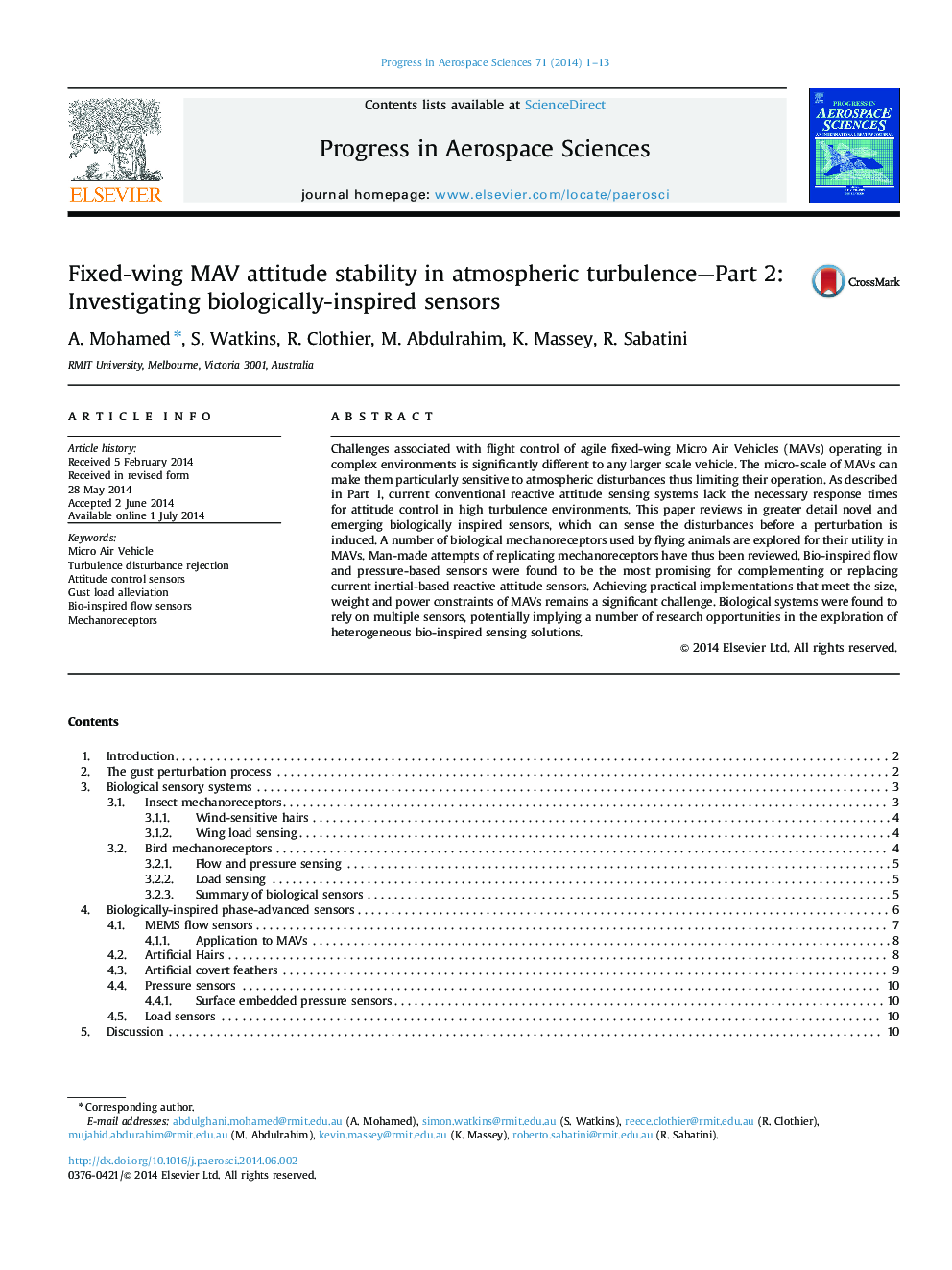| Article ID | Journal | Published Year | Pages | File Type |
|---|---|---|---|---|
| 1719209 | Progress in Aerospace Sciences | 2014 | 13 Pages |
Challenges associated with flight control of agile fixed-wing Micro Air Vehicles (MAVs) operating in complex environments is significantly different to any larger scale vehicle. The micro-scale of MAVs can make them particularly sensitive to atmospheric disturbances thus limiting their operation. As described in Part 1, current conventional reactive attitude sensing systems lack the necessary response times for attitude control in high turbulence environments. This paper reviews in greater detail novel and emerging biologically inspired sensors, which can sense the disturbances before a perturbation is induced. A number of biological mechanoreceptors used by flying animals are explored for their utility in MAVs. Man-made attempts of replicating mechanoreceptors have thus been reviewed. Bio-inspired flow and pressure-based sensors were found to be the most promising for complementing or replacing current inertial-based reactive attitude sensors. Achieving practical implementations that meet the size, weight and power constraints of MAVs remains a significant challenge. Biological systems were found to rely on multiple sensors, potentially implying a number of research opportunities in the exploration of heterogeneous bio-inspired sensing solutions.
